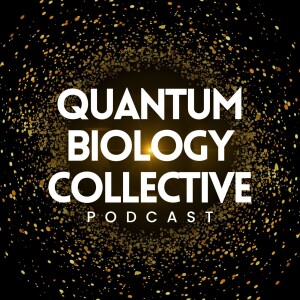
Thursday Apr 11, 2024
EP 071: How To Make Good (Health) Decisions In Challenging Times
“Once you learn the Earth is round, you can sail around it, so you have a lot more options,” says Denise K. Shull, circadian optimized decision expert. “Once you learn there’s an emotional logic to everything, you can sail around your mind and your life in a much more expansive way.” Unfortunately, popular thought still tells us to remove emotions from decision-making and to suppress our fears in order to move forward. On today’s episode of The Quantum Biology Collective podcast, Denise explains that talking yourself out of your fear only makes it grow stronger, and acknowledging what we feel, why we feel that way and getting to the bottom of our worst-case scenarios is how we make our best decisions.
So how can we use these decision-making strategies to help us navigate this new landscape where, increasingly, we are increasingly called upon to be our own health advocates? Denise reveals the three questions she recommends people ask themselves when making health decisions. She’ll share her thoughts on the state of the current medical system and how people’s early experiences shape their relationship and response to authority.
Denise’s coaching has helped everyone from hedge funders to Olympic skiers to succeed. Join today’s discussion to learn how the body reacts to unacknowledged fear and why the most emotional people make the most money in the stock market.
Quotes:
- “Our brains were programmed to keep us safe. And the way that is communicated to us is through a feeling. So, if we’re going to take a risk, the brain is going to deliver us some level of fear—maybe you would just call it concern, maybe you would call it panic, there are a bunch of levels in between—but the brain is going to do that.” (24:54 | Denise K. Shull)
- “There’s this articulating the feeling and being able to have the feeling that, if it doesn’t completely erase it—and it doesn’t always completely erase it—it neutralize it or dissipates it to some degree that then you’re able to bring into the equation the more reality of the situation.” (26:34 | Denise K. Shull)
- “Our unconscious is going to alert us to our biggest risk. That’s it’s job. To make sure we use our expertise to avoid that, but it wants us to know, ‘Worst possible case, this thing could happen.’ And then once you consciously acknowledge that, it’s like, ‘OK, got that message to Meredith’s conscious mind. She can handle it now.’ So, when you try to squash that, it actually gets louder, more intense, more disruptive.” (41:02 | Denise K. Shull)
- “All of us have something to contribute to the world. When you honor yourself by respecting your feelings, your ability to bring whatever your gift is to the world increases.” (1:03:12 | Denise K. Shull)
Links
Connect with Denise K. Shull:
Social Media: @denisekshull
Website: therethinkgroup.net
Book: Market Mind Games
To receive a FREE infographic of the Ideal Circadian Day & join our email list: https://www.quantumbiologycollective.com/qbc-newsletter-aqb
To find a practitioner who understands quantum biology: www.quantumbiologycollective.org
To see details about the Applied Quantum Certification: www.appliedquantumbiology.com
Follow on Instagram & Facebook: @quantumbiologycollecitve
Twitter: @quantumhealthtv
No comments yet. Be the first to say something!